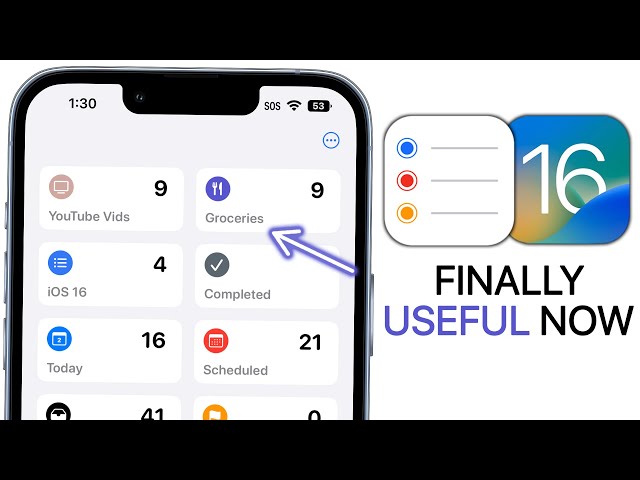In an era characterized by constant distractions and a fast-paced lifestyle, staying organized and productive has become increasingly challenging. However, with the advent of technology, individuals now have access to a myriad of tools designed to streamline their daily activities and boost efficiency. Among these tools, reminders apps have emerged as indispensable companions for millions worldwide, revolutionizing the way people manage their tasks and schedules. From simple “to-do” lists to advanced features like location-based reminders and smart notifications, reminders apps have evolved significantly, catering to the diverse needs of users across various domains.
The Rise of Reminders Apps:
Reminders apps have undergone a remarkable transformation since their inception. Initially, they were basic tools primarily focused on helping users jot down tasks and set alarms. However, as mobile technology advanced and users demanded more sophisticated functionalities, developers responded by introducing innovative features aimed at enhancing user experience and productivity.
Features and Functionality:
Modern reminders apps boast a plethora of features designed to cater to different organizational needs and preferences. These apps typically allow users to create and manage tasks, set deadlines, prioritize activities, and categorize tasks based on various criteria such as urgency or project. Furthermore, many reminders apps offer synchronization across multiple devices, enabling seamless access to tasks and reminders from smartphones, tablets, and computers.
One of the key features that set reminders apps apart is their ability to set location-based reminders. This functionality leverages GPS technology to trigger reminders when the user enters or leaves a specific location. For example, users can set a reminder to buy groceries as soon as they arrive at the supermarket or to pick up dry cleaning when leaving work. This feature not only enhances convenience but also ensures that important tasks are not forgotten.
Moreover, advancements in artificial intelligence (AI) and natural language processing (NLP) have paved the way for the integration of smart assistants into reminders apps. These intelligent assistants can interpret and analyze user input, understand context, and provide relevant suggestions or insights. For instance, users can simply dictate tasks using voice commands, and the app will automatically parse the input, set reminders, and even suggest relevant actions based on previous patterns or preferences.
Impact on Productivity and Well-being:
The proliferation of reminders apps has had a profound impact on both personal and professional productivity. By helping users organize their tasks and manage their time more effectively, these apps empower individuals to accomplish more in less time, thereby reducing stress and anxiety associated with overwhelming workloads. Furthermore, the ability to prioritize tasks and set deadlines ensures that important responsibilities are not overlooked, leading to improved outcomes and satisfaction.
In addition to enhancing productivity, reminders apps also play a crucial role in promoting work-life balance and overall well-being. By providing gentle nudges and timely reminders, these apps help users stay on track with their goals and commitments, allowing them to allocate time for leisure activities, family, and self-care. Moreover, the sense of accomplishment derived from completing tasks and achieving goals can boost morale and motivation, contributing to a positive mindset and greater resilience in the face of challenges.
Integration with Third-party Services:
To further enhance their utility and versatility, many reminders apps offer integration with third-party services and platforms. This integration allows users to consolidate their tasks and reminders from various sources into a single, unified interface. For example, users can sync their calendar events, emails, and project management tools with their reminders app, ensuring that all relevant information is easily accessible and actionable.
Furthermore, reminders apps often support collaboration features, enabling users to share tasks and reminders with colleagues, friends, or family members. This fosters teamwork and coordination, particularly in professional settings where individuals need to collaborate on projects or delegate tasks within a team. By facilitating communication and accountability, these collaborative features streamline workflows and improve efficiency across organizations.
Privacy and Security Considerations:
As reminders apps become increasingly integrated into users’ daily lives, concerns about privacy and security have come to the forefront. Given that these apps often store sensitive information such as personal tasks, appointments, and location data, ensuring robust security measures is paramount. Developers must implement strong encryption protocols, access controls, and data anonymization techniques to safeguard user privacy and prevent unauthorized access or data breaches.
Moreover, transparency regarding data collection practices and user consent is essential to build trust and maintain user confidence. Reminders apps should provide clear and concise privacy policies outlining how user data is collected, stored, and utilized. Additionally, users should have the option to opt-out of certain data collection activities or adjust privacy settings according to their preferences.
Future Trends and Outlook:
Looking ahead, the future of reminders apps is filled with exciting possibilities and innovations. With advancements in AI, machine learning, and predictive analytics, reminders apps are poised to become even more intuitive and personalized. These apps will leverage data-driven insights to anticipate users’ needs, offer proactive suggestions, and adapt to their evolving preferences and behaviors.
Furthermore, the integration of augmented reality (AR) and virtual reality (VR) technologies holds immense potential for enhancing the user experience and expanding the capabilities of reminders apps. Imagine being able to visualize your tasks and reminders in a virtual workspace or receive context-aware notifications based on your surroundings. These immersive experiences will revolutionize the way users interact with reminders apps, making task management more engaging and immersive than ever before.
Conclusion
Reminders apps have emerged as indispensable tools for managing tasks, schedules, and commitments in today’s fast-paced world. With their intuitive interfaces, advanced features, and seamless integration with other services, these apps empower users to boost productivity, stay organized, and maintain a healthy work-life balance. As technology continues to evolve and user expectations evolve, reminders apps will undoubtedly play a central role in shaping the future of personal and professional productivity.

